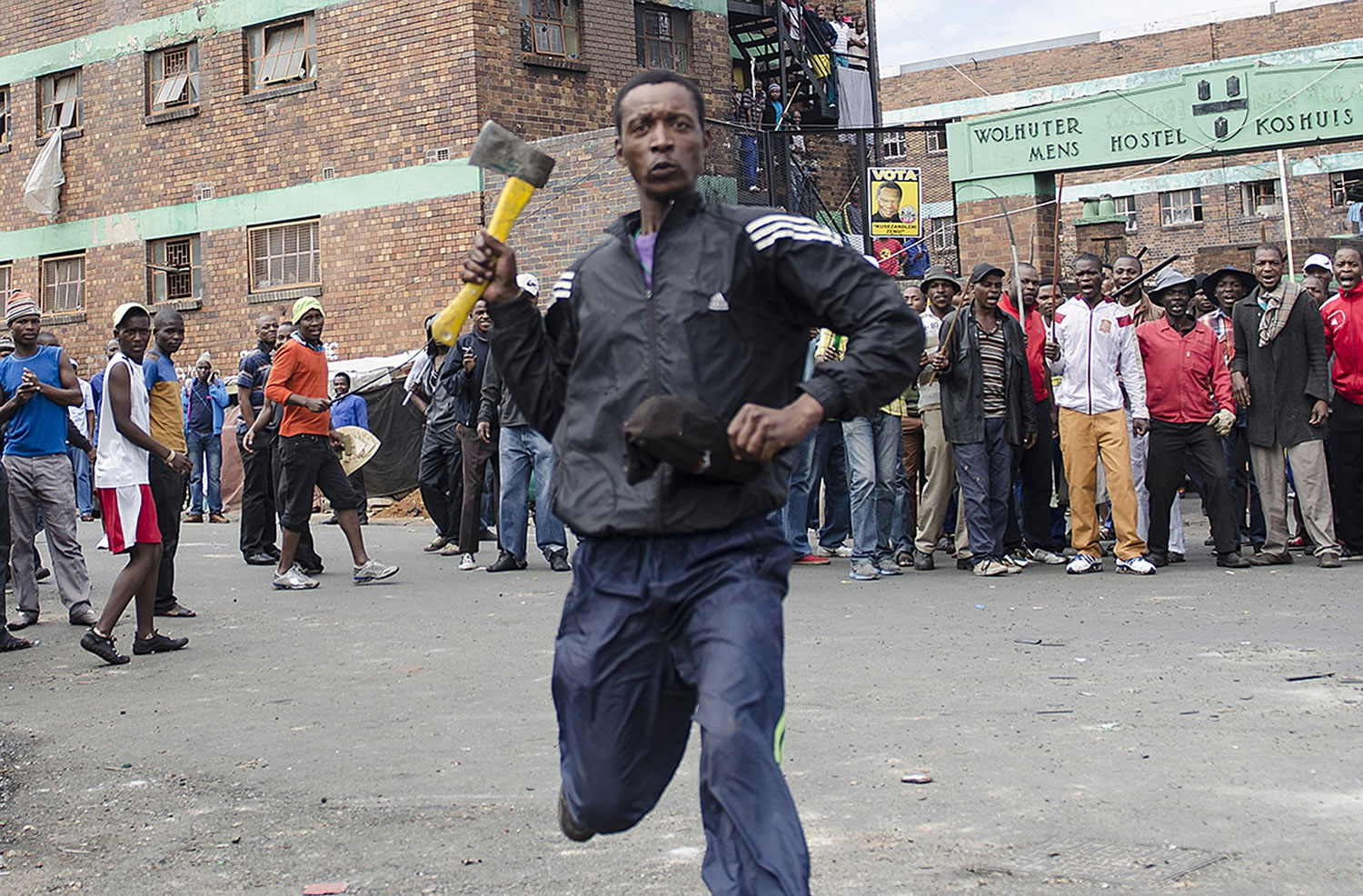JOHANNESBURG — South Africa is facing a backlash from African nations that aided the fight against apartheid after mobs repeatedly attacked foreigners and looted their stores.
At least five people have died in clashes in the eastern port city of Durban, Johannesburg and other towns since last week, while thousands have fled their homes. South Africa’s cabinet warned on Friday that companies operating in the rest of Africa may be targeted, just as Johannesburg-based Sasol announced it’s repatriating South African employees working on projects in Mozambique for their own safety.
The violence is embarrassing for the ruling African National Congress, whose members sought refuge in countries on the continent before white-minority rule ended in 1994.
“Our rainbow nation that so filled the world with hope is being reduced to a grubby shadow of itself more likely to make the news for gross displays of callousness than for the glory that defined our transition to democracy under Nelson Mandela,” Nobel laureate Archbishop Desmond Tutu’s foundation said in an emailed statement on Thursday. “The fabric of the nation is splitting at the seams.”
Some poor South Africans see Somalis, Ethiopians, Malawians and Pakistanis as competitors for jobs and business opportunities in a country with a 24 percent unemployment rate. One fifth of the population of 54 million survive on less than 335 rand ($28) a month. South Africa currently hosts about 65,000 refugees and 295,000 asylum seekers, according to the United Nations Refugee Agency.
The violence has sparked condemnation from governments from Ghana to Malawi, protests in Nigeria and Zimbabwe and calls from continental groups such as the African Union for South Africa to act decisively to stem the attacks.
“If this was happening here in Zimbabwe, the calls for immediate action would be like a cacophony,” Information Minister Jonathan Moyo said in a phone interview from Harare on Thursday. South Africa has to act “to save the lives and livelihoods of their fellow African brothers and sisters from Zimbabwe and elsewhere on the continent. They must act immediately against any form of racism or xenophobia.”
The violence is affecting investor sentiment already hurt by power shortages that have led to rolling blackouts and constrained production and economic growth.
The anti-immigrant attacks are the worst since 2008, when about 60 people died and 50,000 were forced to flee their homes. The latest wave of unrest started in January, when six people were killed around Johannesburg.
The violence in Durban peaked on April 14, when the city center became a battleground as police fired rubber bullets and water cannons to break up clashes between locals and foreigners who sought to defend themselves with knives and metal rods.
More than 5,000 people fleeing the violence in the eastern KwaZulu-Natal province have taken refuge in four tented camps, while many others are being housed in mosques, churches and other buildings, Adrian Edwards, a spokesman for the U.N. Refugee Agency, told reporters in Geneva on Friday.
A mob of several hundred men set fire to auto repair shops in Johannesburg’s city center on Thursday night, according to about a dozen Nigerian mechanics and used-car salesmen.
“Where they can’t steal, they put fire,” Mike, a Nigerian auto-dealer, who didn’t want to reveal his family name for fear of retaliation, said in an interview on Friday. “The men say they’ll come and attack us again today,” he said after inspecting the charred remains of about eight cars in his friend’s workshop. The police are outnumbered by the attackers, he said.
Malawi has hired buses to repatriate its citizens caught up in the violence, Information Minister Kondwani Nankhumwa said.
“I would have wished the government of South Africa would have done more,” he said by phone from Blantyre, the capital, on Thursday. “We are concerned, we are disappointed. We want to take our people back home until the situation normalizes.”
Jeff Radebe, a minister in the South African presidency, warned that the attacks would have far-reaching consequences for the nation’s economy and its relations with Africa and the rest of the world.
“South African companies who are running successful businesses in the continent who help to contribute to our revenue and sustaining our economy may suffer the similar fate,” he told reporters in Pretoria, the capital.
The Economic Community of Western African States, a 16- nation regional group, said in a statement on Friday that it was regrettable that “the very people, whose nations sacrificed to help South Africans fight, repel and defeat apartheid, will today be considered aliens and hacked to death in such barbaric manners.”
Patrick Gaspard, the U.S. ambassador to South Africa, and the African Union, a 53-nation continental grouping, also issued statements on Thursday condemning the attacks. China made a formal complaint with South Africa’s government about attacks directed against its nationals, Xinhua news agency reported on Thursday, citing Foreign Ministry spokesman Hong Lei.
The violence has also outraged South Africans, with as many as 10,000 people joining an anti-xenophobia march through the streets of Durban on Thursday. A smaller protest was also staged outside the gates of Parliament in Cape Town.
President Jacob Zuma, who spent years in exile in Mozambique and Swaziland, appealed for calm in an interview with state television on Wednesday night and reiterated his call in an address to the National Assembly on Thursday.
“The attacks violate all the values that South Africa embodies,” he told legislators. “No amount of frustration or anger can ever justify the attacks on foreign nationals.”



